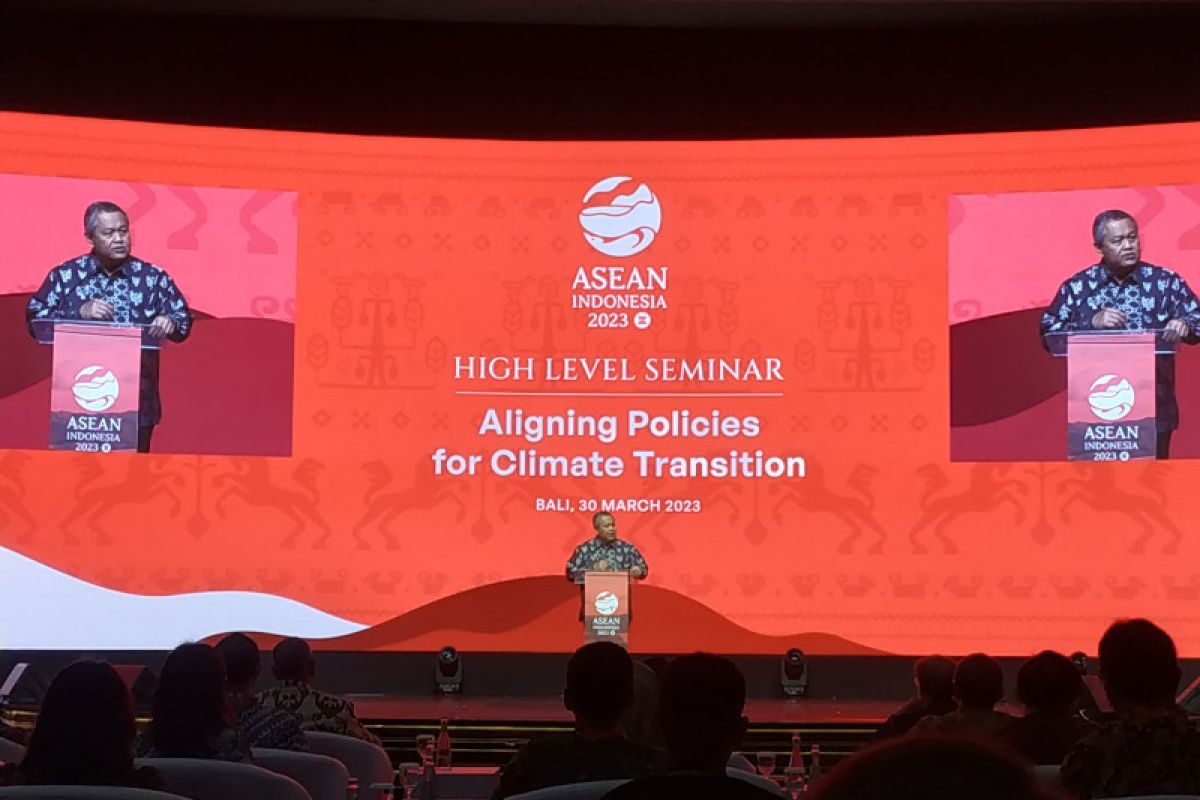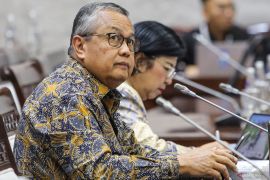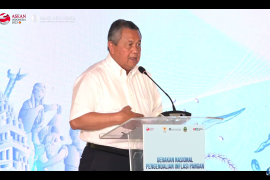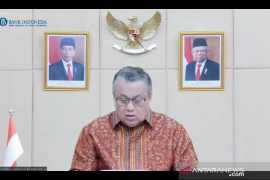During the "High-Level Seminar on Aligning Policies for Climate Transition” held on Thursday, he said that the climate change transition can be well-managed through three efforts.
The efforts comprise establishing firm policies and political support, developing a clear climate transition framework, and maintaining the sustainability of capital for financing green project development.
"Thus, adjusting policies for (the implementation of) the climate transition is crucial," he said.
He said that BI is committed to achieving sustainable development and growth through collaboration with the government and the private sector in a number of policies.
These policies include providing liquidity incentives to banks running green projects, carrying out green financial technical assistance workshops for local governments, and implementing foreign exchange reserve management, including green sector portfolios and sukuk.
Warjiyo said that each ASEAN member country has varying financial management capacities, requiring technical assistance for the implementation of green transition policies.
As a result, all central banks of ASEAN members have been assigned the dual responsibility of promoting green financing and implementing financial transition policies.
According to a press release on the seminar posted on BI’s website, the implementation of sustainable financing needs to be supported with regional-level efforts.
The Indonesian central bank considers the role of the central banks of ASEAN countries important in developing a transitional framework for green financing, encouraging sustainable disclosure on green project financing, and formulating policies to achieve net-zero emissions to tackle climate change.
Hence, the implementation of the 1st ASEAN Finance Ministers and Central Bank Governors Meeting (AFMGM) under Indonesia’s 2023 ASEAN chairmanship is a momentum to develop low-carbon business operations as well as low-emission products and technologies in the region.
According to the statement, ASEAN countries are quite vulnerable to climate change, considering the high risk of natural disasters occurring as well as dependence on climate-sensitive economic sectors such as agriculture, natural resources mining, and fisheries.
Related news: Indonesia needs US$281 bln in climate change financing
Related news: Curbing climate change could keep global GDP from sliding: BI
Translator: Agatha Victoria, Uyu Liman
Editor: Anton Santoso
Copyright © ANTARA 2023












